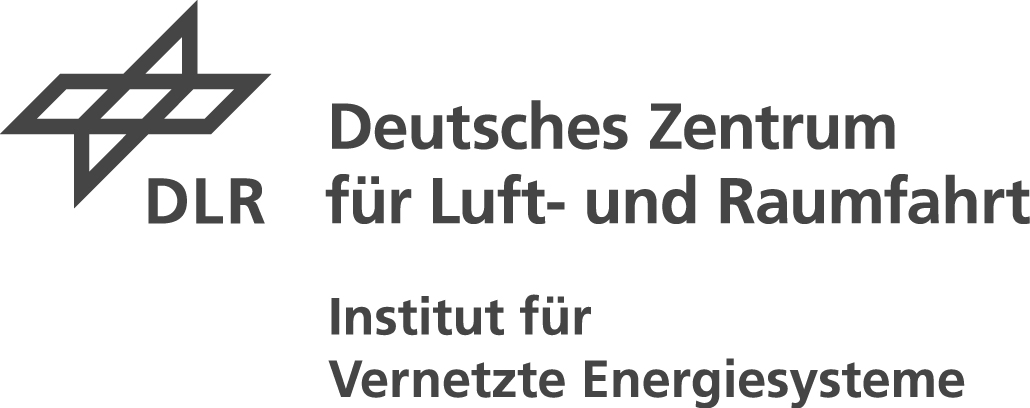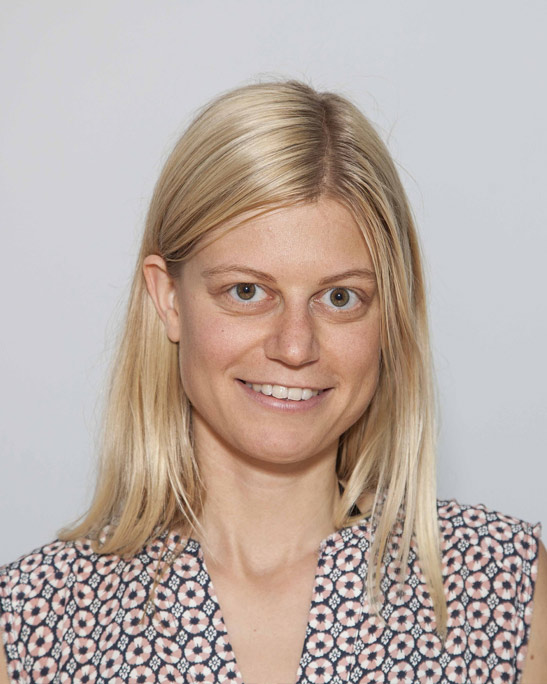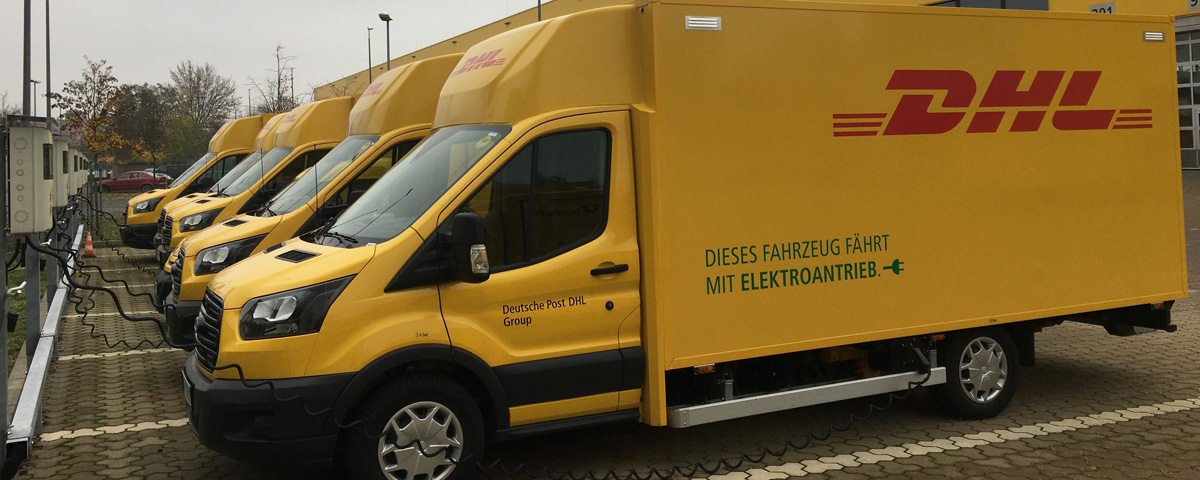
Intelligent networking of electric mobility and power grids – Research project launched
9. December 2019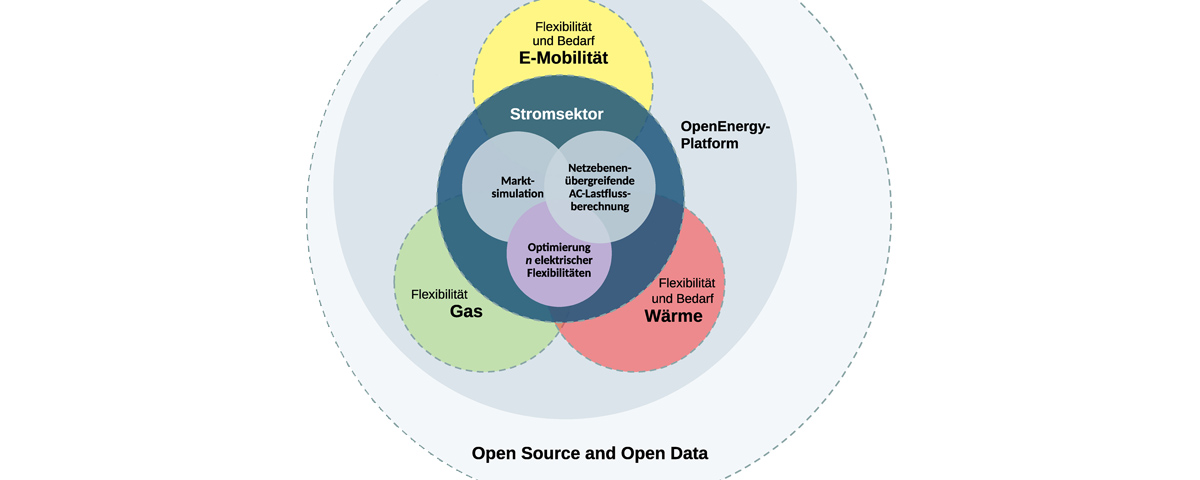
Planning instrument for the use and expansion of flexibility options – Research project launched
9. January 2020eGon

Open, cross-network and cross-sectoral planning instrument for the optimal use and expansion of flexibility options in Germany
Within the framework of eGon, the effects of sector coupling on the power grid are investigated. In addition to the expansion of renewable energy, the integration of the energy sectors (heat, mobility, gas) creates further demands on the electricity grid. This includes the expansion and restructuring of the grid on several grid levels.
The aim of the research project eGon is to investigate the necessary grid expansion in the German electricity grid caused by the integration of renewable energy and the integration of other energy sectors. It also investigates how network expansion can be avoided by using flexibility options.
To this end, the planning instrument eGo (see research project open eGo) will be expanded and further developed. Within the framework of the research project, the existing planning tool will be supplemented by requirements and flexibilities from the areas of gas, heat and e-mobility as well as other electrical flexibilities. This extension of the tool is intended to identify opportunities and potentials, but also challenges, which a progressive sector coupling for the German electricity grid will bring. All voltage levels of the electricity grid are taken into account.
As in the previous project, the extended planning tool open_eGo will be documented and following the open source guidelines published. Data sets are also published under an Open Data license.
Project duration: December 2019 – November 2022
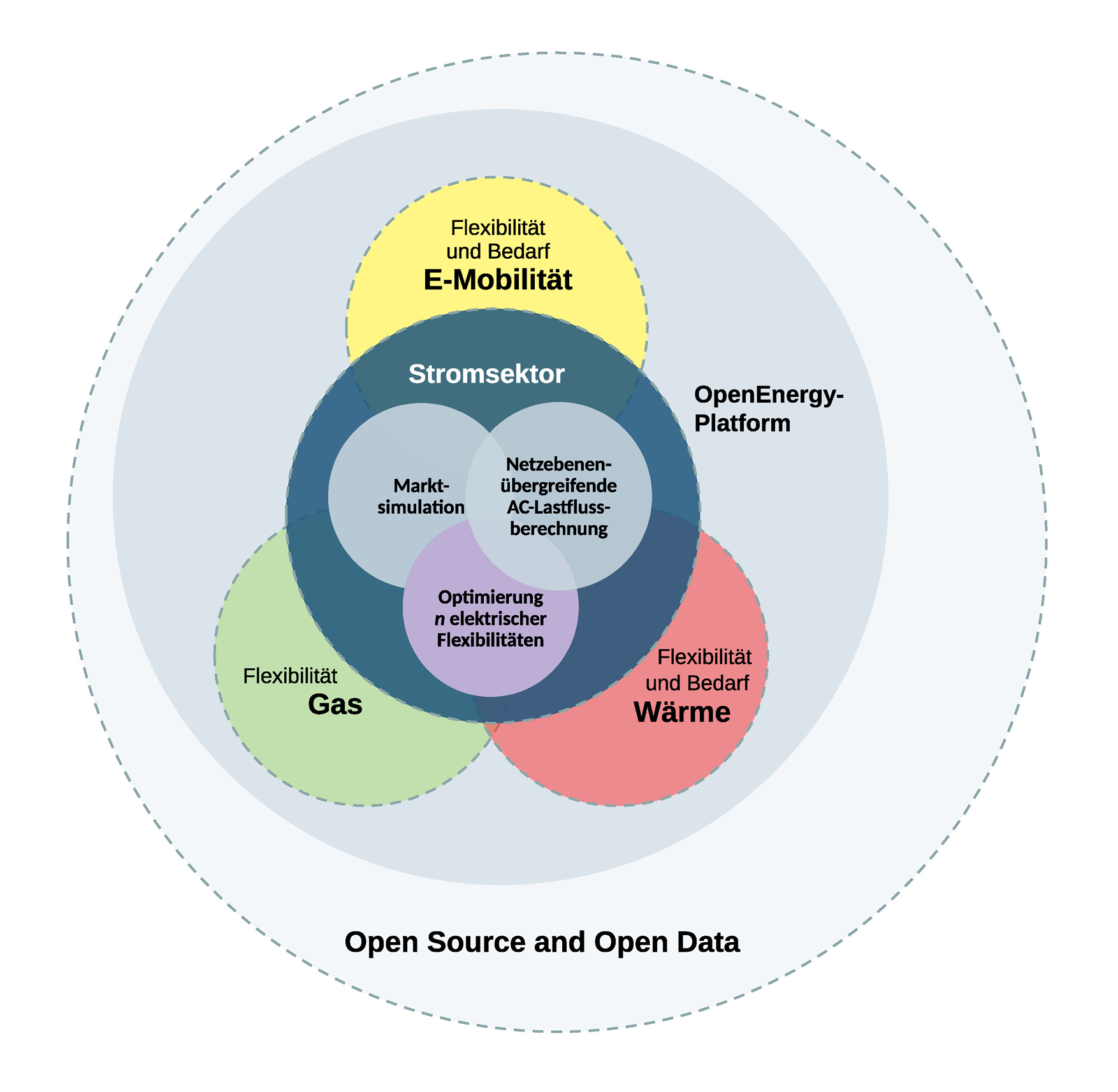
The aim of the research project eGon is to investigate the necessary grid expansion in the German electricity grid caused by the integration of renewable energy and the integration of other energy sectors. It also investigates how network expansion can be avoided by using flexibility options.
To this end, the planning instrument eGo (see research project open eGo) will be expanded and further developed. Within the framework of the research project, the existing planning tool will be supplemented by requirements and flexibilities from the areas of gas, heat and e-mobility as well as other electrical flexibilities. This extension of the tool is intended to identify opportunities and potentials, but also challenges, which a progressive sector coupling for the German electricity grid will bring. All voltage levels of the electricity grid are taken into account.
As in the previous project, the extended planning tool open_eGo will be documented and following the open source guidelines published. Data sets are also published under an Open Data license.
Project duration: December 2019 – November 2022
Further information on the eGon Project can be found on the project website .

RLI assumes the following tasks within this research project:
- Requirements assessment and time series for the mobility sector
- Support for demand assessment and time series for the heat and gas sector
- Extension of the distribution network model generator ding0 to map urban network structures
- Verification of the generated data model
- Development of innovative methods of distribution network planning and approaches for complexity reduction
- Further development of the network planning instrument eGo
- Scenario analysis of the effects of sector coupling on the electricity system
- Publications of open source software, open data data and scientific publications
- Organization and implementation of workshops
- Supervision of the project website
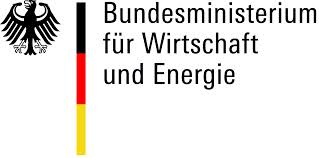
Funded by the Federal Ministry for Economic Affairs and Energy (BMWi) as part of the 7th Energy Research Program.
Funding number: 03EI1002B
Research at RLI is supported by the Reiner Lemoine Foundation.
C. Büttner, J. Amme, J. Endres, A. Malla, B. Schachler und I. Cußmann: Open modeling of electricity and heat demand curves for all residential buildings in Germany, Energy Informatics 2022, 5(Suppl 1):21, September 2022.
M. Jahn: Analysis of the effects of spatial complexity reduction on the distribution network expansion planning with flexibilities, July 2022.
P. Dubielzig: Modeling of synthetic distribution network topologies in urban areas, March 2022.
M. Held: Grid-optimized use of flexibility in radial distribution grids based on an AC load flow model, August 2023.
M. Jahn: Analysis of the effects of spatial complexity reduction on the distribution network expansion planning with flexibilities, July 2022.
P. Dubielzig: Modeling of synthetic distribution network topologies in urban areas, March 2022.
M. Held: Grid-optimized use of flexibility in radial distribution grids based on an AC load flow model, August 2023.






